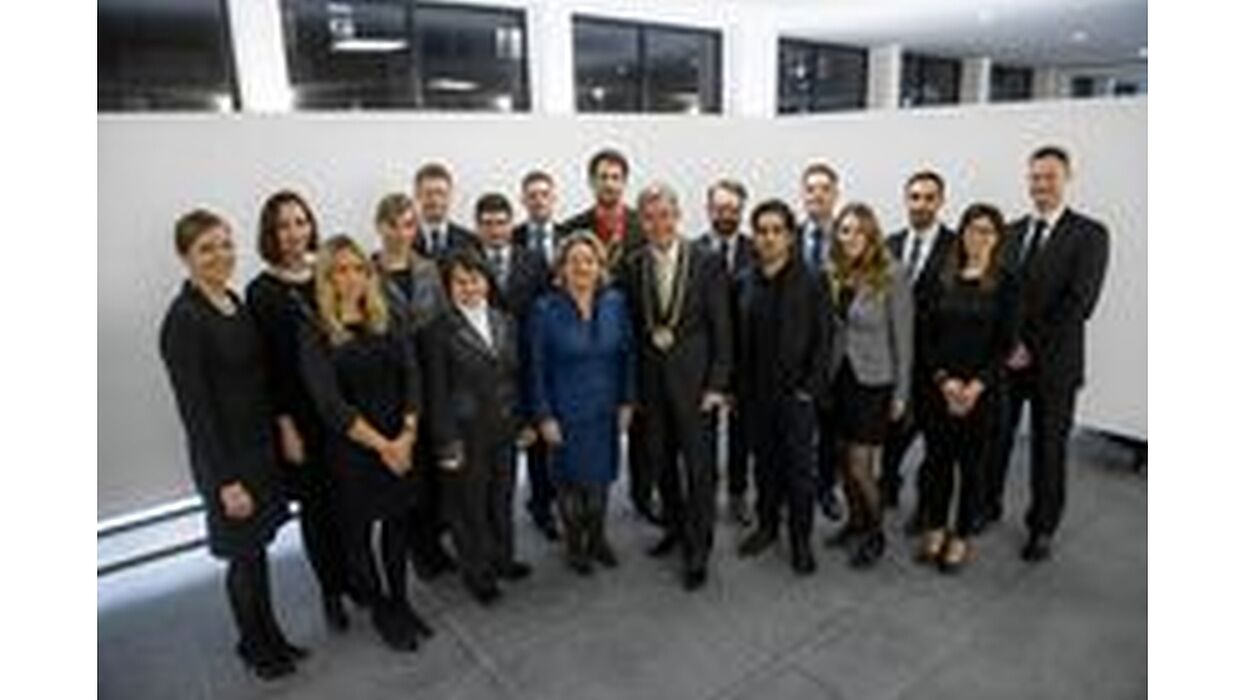Begin: Wed, 21. of Jan 2015 ( 1:00 PM)
Location: Düsseldorf
Jun.-Prof. Dr. Michaela Geierhos is appointed as a new member of the "Junges Kolleg" of the North Rhine-Westphalian Academy of Sciences, Humanities and the ArtsOn January 21, 2015, Jun.-Prof. Michaela Geierhos is officially elected during the 2015 New Year's reception as a new member of the "Junges Kolleg" of the North Rhine-Westphalian Academy of Science, Humanities and the Arts. This makes her the fourth CRC 901 member, after the professors Burkhard Monien, Franz Josef Rammig and Friedhelm Meyer auf der Heide, to receive the membership in this famous academy.
For the promotion of young scientists in North Rhine-Westphalia, the "Junges Kolleg" was founded in2006 in which up to 30 outstanding young scientists of all disciplines can be called for terms of fouryears each. This programme has been made possible through the financial support of the Mercator Foundation. Starting in 2014, the country North Rhine-Westphalia has taken over the finance.
The "Junges Kolleg" offers an interdisciplinary platform for the exchange and the joint elaboration of critical evaluation of socially relevant issues. The maximum of 30 young scientists and young researchers will be technical, financial, and moral supported. Each will receive an annual stipend of10.000 euros for up to four years and take part in the life of the academy. Outstanding scientificachievements at a university or research institution in North Rhine Westphalia are prerequisite for themembership in the "Junges Kolleg" - in addition to the PhD -. The members may at their inclusion inthe "Kolleg" not be older than 36 years and have still no permanent position at a university.
We sincerely congratulate Michaela Geierhos for this prestigious award!

